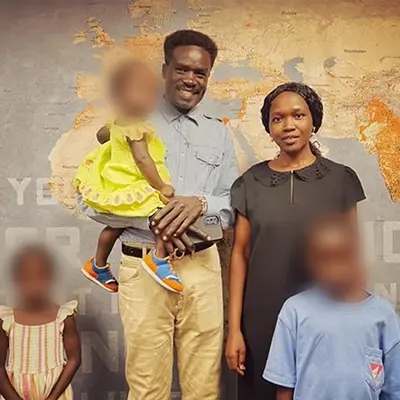- Catholic Bishops’ Conference of Bolivia challenges the forcible closure of their teachers college, shut down by the 2010 General Education Act.
- The Bishops’ Conference has issued a petition to reopen the academic institution challenging the constitutionality of the closure.
LA PAZ, BOLIVIA (9 March 2023) – The Bolivian Catholic Conference of Bishops has commenced legal proceedings to reopen its teachers college, Instituto Normal Superior Católico Sedes Sapientiae (INSCSS), located in Cochabamba, which was forcibly closed by the state in 2010 in an effort to nationalize the training of teachers. At that time, the newly passed Education Act ordered the closure of the two existing teacher training schools operated by the Catholic and Adventist churches, in addition to barring the creation of any future private institutions offering academic degrees on teaching.
The Bishops’ Conference has filed a petition to reopen the teachers college with the Bolivian Ministry of Education, along with a constitutional challenge to the Education Act. The Ministry is obligated to refer the case to the Constitutional Court.
“By forcing the closure of the Catholic teachers college, the Bolivian State has violated the rights of Bolivians, protected under both the Constitution and international law, to religious freedom and to pursue an education that conforms with their convictions,” stated Tomás Henríquez, ADF International’s Director of Advocacy for Latin America, serving as one of the lead legal advisors to the Bishops’ Conference.
ADF International is providing legal support to the Bolivian Catholic Conference of Bishops as it seeks to challenge the constitutionality of the forced closure and the permanent ban on the establishment of new schools for teacher training.
Henríquez further noted: “International law specifically recognizes the liberty of bodies, such as the Conference of Bishops, to establish and direct educational institutions without interference. What the Bolivian state is doing to undermine Catholic education is an overt violation of this fundamental freedom”.
Bishop Fernando Bascopé, President of the Education Area of the Bolivian Catholic Conference of Bishops, commented as follows: “The State is violating not only the right of the Catholic Church to train its own teachers according to the beliefs professed by the majority of Bolivians, but also it is violating the rights of parents, who are primarily responsible for the education of their children, to choose the type of education that reflects their values, ideas, and convictions”.
Background
By nationalizing the provision of education in Bolivia and decreeing the closure of the INSCSS, the Bolivian State is in violation of international human rights law, which is incorporated into its law by virtue of constitutional mandate.
Article 13.4 of the International Covenant on Economic, Social and Cultural Rights (ICESCR) protects the “liberty of individuals and bodies to establish and direct educational institutions, subject … to the requirement that the education given in such institutions shall conform to such minimum standards as may be laid down by the State”. Bolivia’s legislation runs afoul of human rights law by establishing a blanket prohibition on the freedom of organizations and churches to fulfill the minimum standards to operate freely.
Further, parents have the right per Article 13.3 of the ICESCR to “to choose for their children schools … to ensure the religious and moral education of their children in conformity with their own convictions”.
Henríquez noted that, “In shutting down private teachers colleges, the Bolivian state is barring religious institutions from training their own staff. This effectively renders their schools non-sustainable in the long-term. This will have the effect of eventually depriving parents that want to seek Catholic instruction for their children of the ability to pursue an education that conforms with their beliefs, thereby violating international law”.
The INSCSS was created on February 23, 1956 at the request of Archbishop Abel Antezana of La Paz. The purpose of the college was (i) to train teachers for initial, primary, and secondary levels of education; (ii) to certify its graduates as teachers; and (iii) to process the registration of its graduates according to Bolivian national teaching standards.
The INSCSS has trained over 12,750 teachers, and has produced 125 educational texts, including 14 written in different indigenous languages to meet the needs of Bolivians. In addition, the INSCSS has received several distinctions from different mayors and governors for its contributions to culture, education, and development in Bolivia. Some notable distinctions include the highest Bolivian state distinction, the National Decoration of the Order of the Condor of the Andes, as well as decorations from the Plurinational Legislative Assembly of Bolivia for its outstanding work in teacher training.
In 2010, the Plurinational Legislative Assembly of Bolivia issued the Education Act under Law No. 070, also known as the “Avelino Siñani Law,” which nationalized teacher training. The law usurped the freedom of institutions to train teachers, giving the State exclusive competence over the matter. At the same time, it ordered the closure of private teacher training institutes. Subsequently, the INSCSS was closed.













